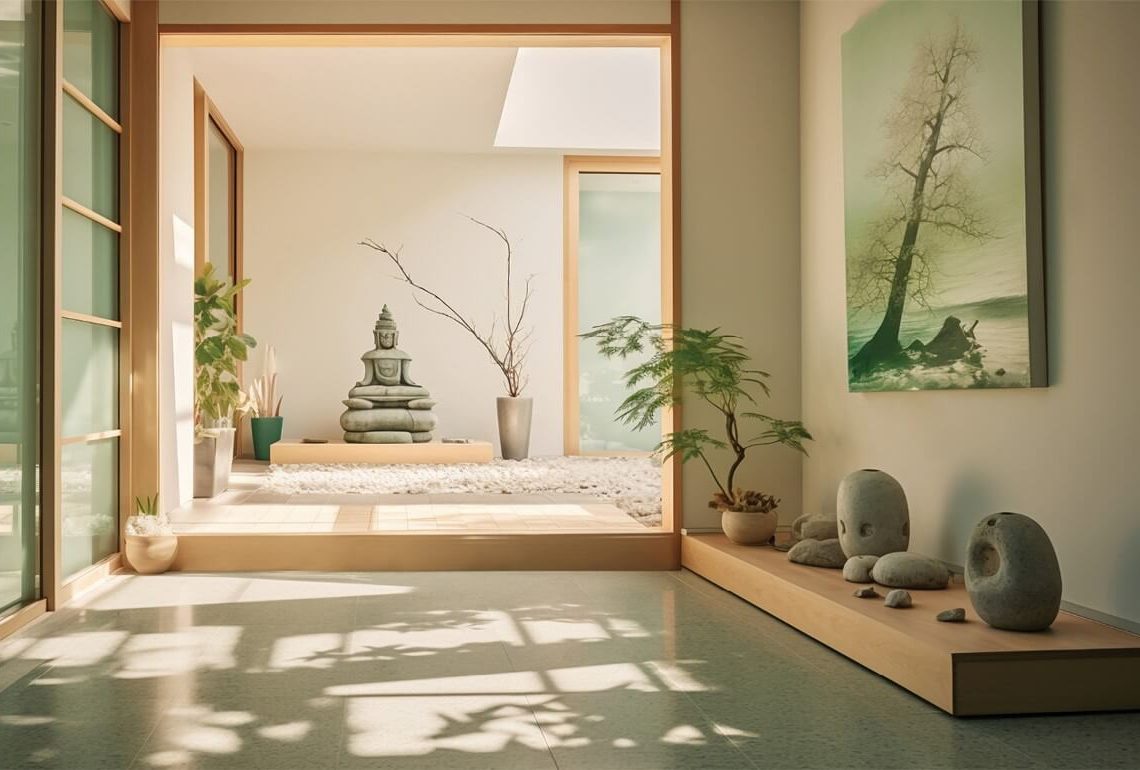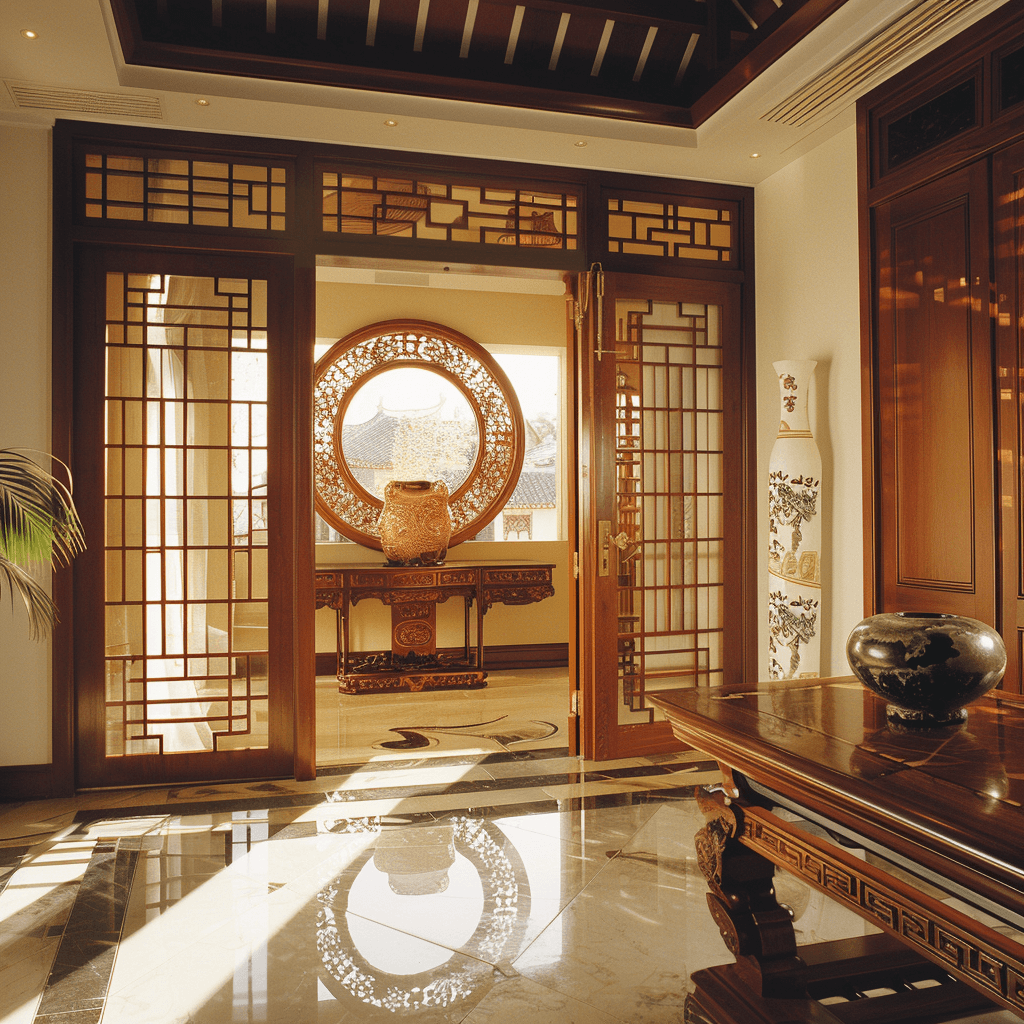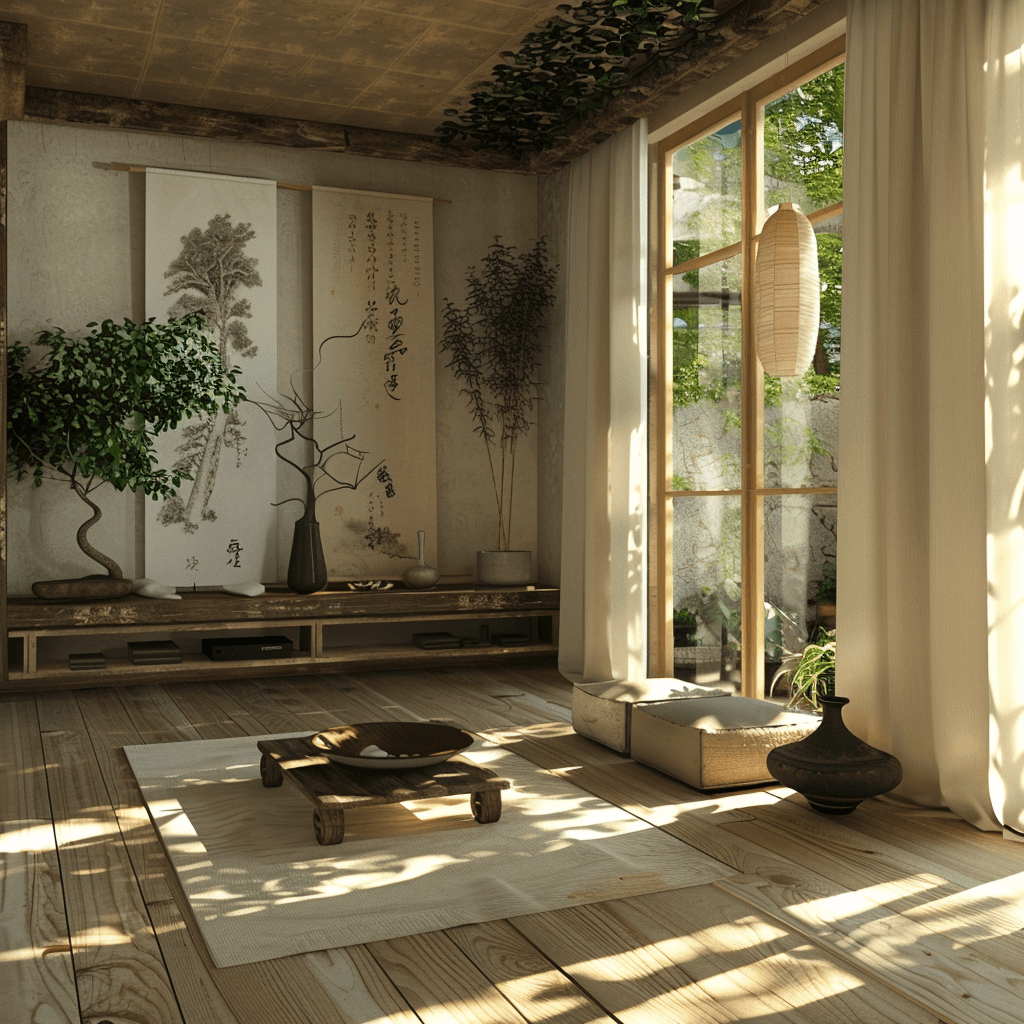Feng Shui: The Ancient Art of Creating Harmonious Spaces

Feng Shui, an ancient Chinese art and science dating back over 3,000 years, continues to influence the design and arrangement of modern living and working spaces around the world. Rooted in Taoist philosophy, Feng Shui, literally translating to “wind” and “water,” is based on the concept of living in harmony with one’s environment. The practice involves arranging buildings, objects, and space in an environment to achieve balance and harmony through the flow of natural energy, known as “qi” (chi). This article explores the fundamentals of Feng Shui, its applications, and its impact on contemporary life.
Principles of Feng Shui

At its core, Feng Shui is about balancing the energies in any given space to assure health and good fortune for people inhabiting it. Feng Shui makes use of various tools and concepts:
- The Five Elements: Wood, Fire, Earth, Metal, and Water are essential components of Feng Shui. Each element represents different colors, shapes, and attributes, and their proper use and positioning can enhance particular areas of one’s life.
- The Bagua Map: This is an energy map that divides a space into eight areas related to different life experiences: wealth, fame, love, family, health, children, knowledge, and career. Each area can be enhanced with specific colors and elements to attract positive energy.
- Yin and Yang: This principle embodies the idea of balance and duality—dark and light, soft and hard, passive and active. In Feng Shui, creating a balance between yin and yang energies within a home or office is essential for cultivating a favorable environment.
Applications of Feng Shui
Home Design: Feng Shui plays a critical role in home layout and interior design. It can dictate the positioning of furniture, the choice of colors, and even the direction the home faces. Bedrooms, kitchens, and entryways have specific guidelines to maximize the flow of good energy. For example, in the bedroom, it is advisable to have the bed positioned in a way that allows a clear view of the door but is not in direct alignment with it.

Office and Business: Feng Shui is also commonly applied in office and business settings to improve the flow of energy that influences the well-being and productivity of those working within. Arranging workspaces to face the entrance and using specific elements to boost the energy in career areas of the Bagua can create a more dynamic and successful business environment.
Gardens and External Spaces: The principles of Feng Shui extend to garden layouts and landscaping. The arrangement of paths, plants, and water features can influence the energy flow, enhancing the property’s aesthetics and its inhabitants’ well-being.

Benefits of Feng Shui

Adherents of Feng Shui report a variety of benefits, from improved relationships and increased wealth to enhanced health and general well-being. By aligning their environment with the principles of harmony and energy flow, people often feel more aligned internally, reporting greater peace and productivity.
Modern Adaptations and Challenges
While Feng Shui has ancient roots, it has adapted to modern contexts, influencing everything from corporate megastructures to small urban apartments. However, the practice faces skepticism, especially from those who see it as superstitious or unscientific. Despite this, Feng Shui continues to grow in popularity, finding its place as a spiritual and aesthetic guideline in the architectural and design communities.
Conclusion

Feng Shui offers more than just a set of design principles; it provides a way to understand and influence the energy in living spaces. Whether one sees it as a science, an art, or a philosophy, its ultimate aim is to improve life quality by creating balanced, harmonious environments. In a world where the environment dramatically affects our mood and productivity, Feng Shui offers valuable tools to enhance our living and working spaces.





